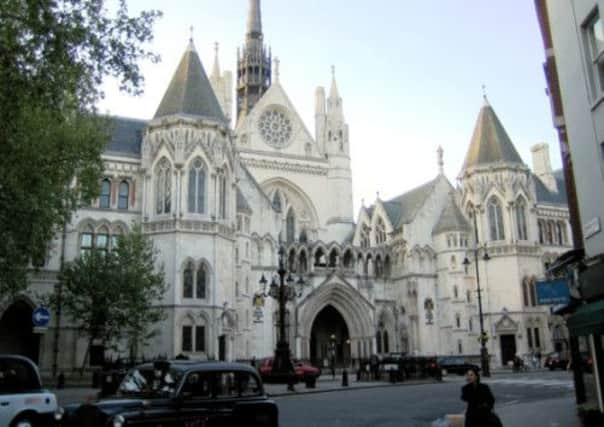Kenyan torture victims to get UK compensation


Negotiations began after the High Court in London court ruled in October that three elderly Kenyans, who suffered castration, rape and beatings while in detention during a crackdown by British forces and their Kenyan allies in the 1950s, could sue Britain.
The torture took place during the so-called Kenyan “Emergency” of 1952-60, when fighters from the Mau Mau movement attacked British targets, causing panic among white settlers and alarming the government in London.
Advertisement
Hide AdAdvertisement
Hide Ad“We have agreed on an out-of-court settlement,” Kenyan lawyer Paul Muite, an adviser to the Mau Mau veterans seeking compensation, said, according to the news agency Reuters.
“[The negotiations] have included everybody with sufficient evidence of torture. And that number is about 5,200,” he said, declining to comment on the size of the payout.
A formal announcement on the settlement is expected as early as today.
The Foreign Office declined to comment on reports that the settlement would total £14 million pounds.
This would work out at about £2,600 – or 339,560 Kenyan shillings – per claimant in a country where average national income per capita is around 70,000 shillings.
The Mau Mau nationalist movement originated in the 1950s among the Kikuyu people of Kenya. Its loyalists advocated violent resistance to British domination of the East African country.
The Kenya Human Rights Commission has estimated 90,000 Kenyans were killed or maimed and 160,000 detained during the uprising.
The British government tried for three years to block the Mau Mau veterans’ legal action in the courts, drawing condemnation from the elderly torture victims who accused Kenya’s former colonial master of using legal technicalities to fight the case.
Advertisement
Hide AdAdvertisement
Hide AdCaroline Elkins, a Harvard history professor who acted as an expert witness in the case launched in 2009, said the settlement would be the first of its kind for the former British Empire.
“[It] should be seen as a triumph,” Ms Elkins said during a visit to Nairobi for the British announcement.
Ms Elkins wrote the book Imperial Reckoning: The Untold Story of Britain’s Gulag in Kenya which served as the basis for the Mau Mau case.
Britain had first said that responsibility for events during the Mau Mau uprising passed to Kenya upon its independence in 1963, an argument which London courts rejected.
The government then said the claim was brought long after the legal time limit. But a judge in October’s ruling said there was ample documentary evidence to make a fair trial possible.